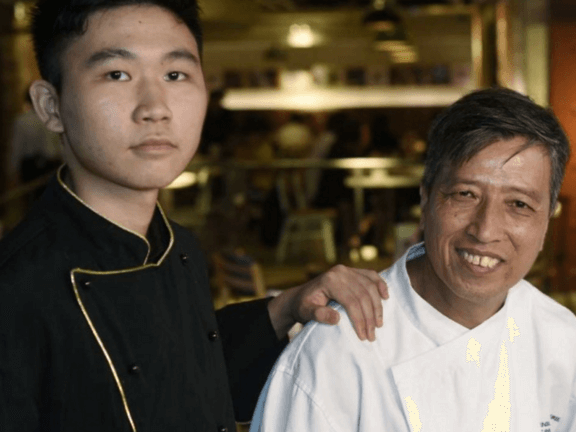
Inside the Hong Kong bakery giving reformed drug traffickers and murderers a second chance
【South China Morning Post】At 52, Paul Chung landed his first full-time job in life – as a pastry pupil under 18-year-old Lam Chun-ho who also just began his career. Despite the 34-year age gap, they have something in common: both are being employed for the first time after serving time for drug trafficking.
The men work at Le Fournil, a bakery set up as a social enterprise in 2015 by owner Rebekah Chan Mi-ki. More than half of her staff are ex-convicts ranging from former drug traffickers to murderers. “I only employ people who committed serious crimes,” Chan said.
“Many people see no value in employing ex-convicts – [they have] no skills and no qualifications. But if you give them an opportunity, their passion and ability are no worse than any other people.”
Chung and Lam are the exception among former inmates looking to secure a full-time job after prison. According to The Society of Rehabilitation and Crime Prevention – one of the biggest non-governmental organisations providing inmate support services – while 47 per cent of the 5,545 former inmates it reached out to in 2015 were employed, only 20 per cent worked full-time while the rest were part-time workers or in temporary jobs.
Bakery owner Chan, who has 30 years of experience in the industry, said big catering corporations that she worked for would usually only employ a few former convicts for jobs like toilet cleaning, as most did not even have the minimum qualifications.
Chan said it would be impossible for such businesses to take in someone like Paul Chung, now 53, who spent nearly half his life behind bars. He was originally sentenced to death for drug trafficking in Thailand at the age of 24, but had his sentence reduced to imprisonment after pleading guilty.
Chan went by a different set of standards when she employed Chung last November.
“He is somebody who should have been dead already. So I am certain this man would give his best in his second chance at life,” she said.
Chan’s strong faith in employees who are ex-convicts has been challenged by some senior chefs in the bakery who complained that their colleagues are slow in learning and hard to work with.
One of them, Chan recalled, pressured her to choose between employing him or Chung.
She asked the senior chef to leave.
“I am very grateful,” Chung said of the support and trust he received from Chan. It made him feel accepted by society again.
But his inspiration to become a cookie maker at the bakery was his “sifu” (master) Lam Chun-ho, now 19, who was also jailed for drug trafficking, three years ago.
“It was hard for me to accept that I have to be taught by such a young boy at first,” Chung said. He refused to talk to Lam for months after being assigned under him to learn how to make cookies.
Chung added: “But then I saw him staying back after work and experimenting with recipes on off days, reading books even when he was eating, and attending evening courses after work ... I realised I still have a lot to learn.’’
“I now see the process of making cookies as remaking my own life,” Chung said.
“You have to get the basics right first.”